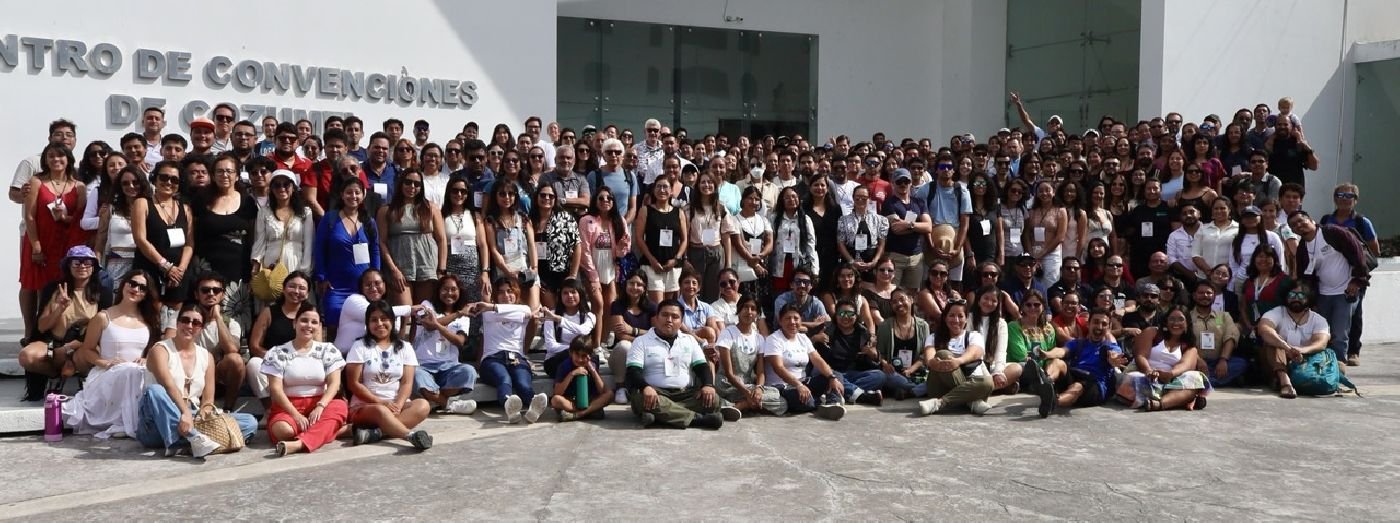Cozumel, Mexico — With a record-breaking participation of more than 300 specialists and students from 71 academic institutions, Isla Cozumel became the meeting point for Mexican and Latin American marine science for one week. The XIII Mexican and IV Pan-American Congress on Coral Reefs, coordinated by the Autonomous University of the State of Quintana Roo (UQRoo), the National Commission of Natural Protected Areas (Conanp), and the Mexican Society for Coral Reefs (SOMAC), made it clear that the defense of marine ecosystems is not fought in political speeches, but in laboratories, classrooms, and the reefs themselves.
The opening of the event, held on October 13, marked a milestone for Quintana Roo's academic community. Representing the rector, Dr. Natalia Fiorentini Cañedo, the coordinator of the Northern Academic Unit, Dr. Víctor Andrés Gáber Bustillos, highlighted the joint effort of institutions and scientists to bring this international meeting to Cozumel for the first time. His call to strengthen the conservation of Mexican reefs resonated on an island whose economy and culture depend directly on the health of the sea.
During his speech, the president of SOMAC, Dr. Horacio Pérez España, emphasized that after 25 years of congresses, the scientific community has moved "from describing to preventing patterns." The phrase summarizes the change of era facing coral research: science no longer seeks only to understand reefs, but to anticipate their collapse. Amid the global crisis of coral bleaching, specialists warned that knowledge is now the only barrier between conservation and irreversible loss.
The inaugural plenary session, led by researcher Derek Manzello from the NOAA in Australia, presented attendees with a disturbing panorama: the fourth global coral bleaching event, which began in 2023, remains active and threatens entire regions of the Caribbean. Later, a panel led by Anastazia Banaszak, Andrés López Pérez, Sergio Guendulain García, and María del Carmen García Rivas, director of Conservation for Conanp, contrasted viewpoints on the future of reefs: some hopeful, others deeply pessimistic in the face of advancing climate change and coastal pollution.
The congress, which combined activities at the Cozumel Convention Center and the UQRoo Cozumel Campus, included more than 130 presentations distributed across six thematic areas: from reef ecology and health to sustainable tourism and citizen science. The conference by Dr. Alma Paola Rodríguez Troncoso, from the University of Guadalajara, stood out, as she proposed that restoring a reef "is not just about replenishing species, but about rebuilding ecological and social processes over the long term."
Beyond the numbers and recognitions, the congress left an underlying political message: science is assuming the leadership that governmental institutions have left vacant. While public environmental policies remain fragmented or subordinated to tourism interests, the academic community of Quintana Roo demonstrated that the defense of the sea is also a form of sovereignty. In Cozumel, reefs were more than a topic of study: they were reaffirmed as a common heritage, a living frontier between indifference and collective responsibility.
Discover more from Riviera Maya News & Events
Subscribe to get the latest posts sent to your email.
